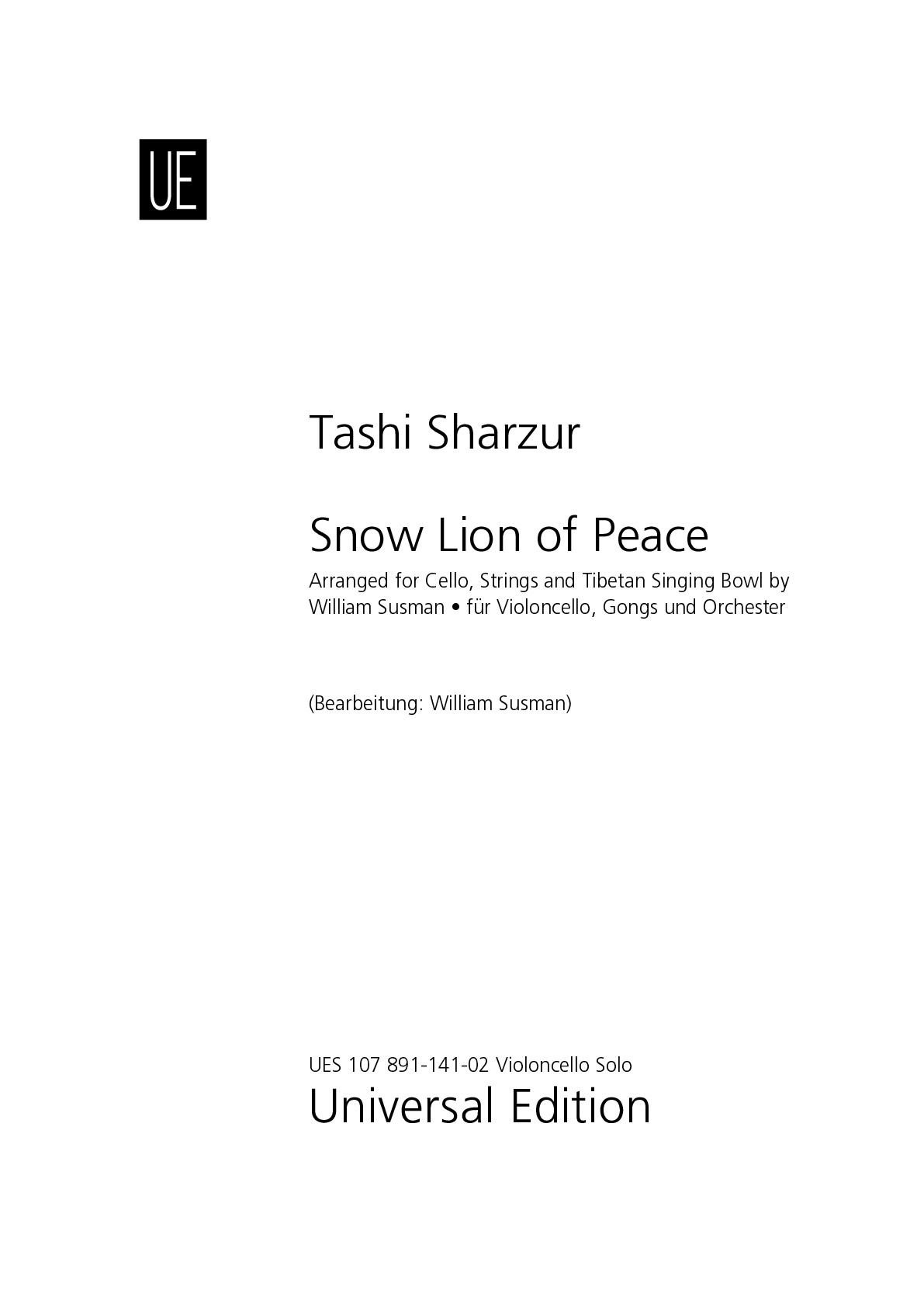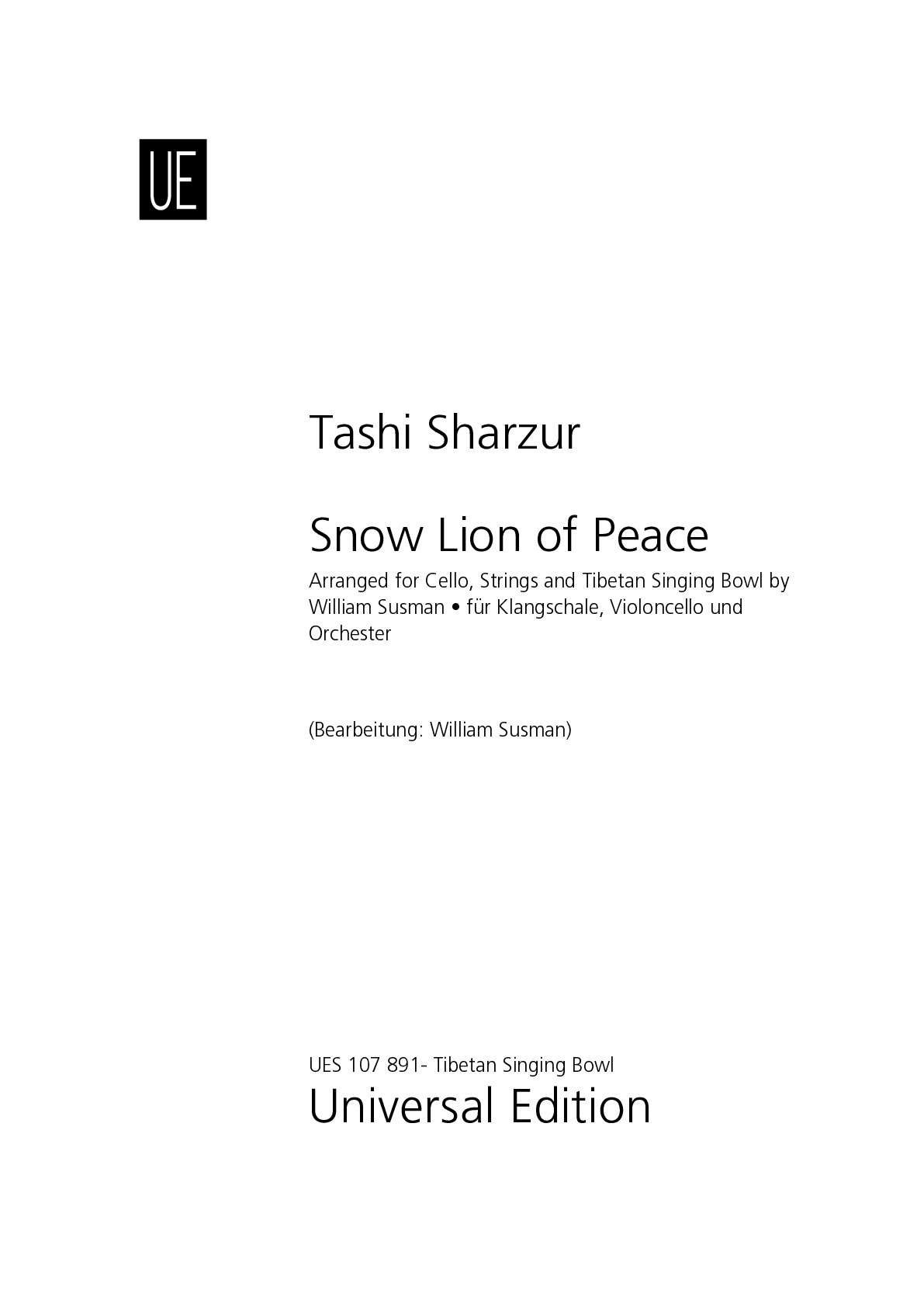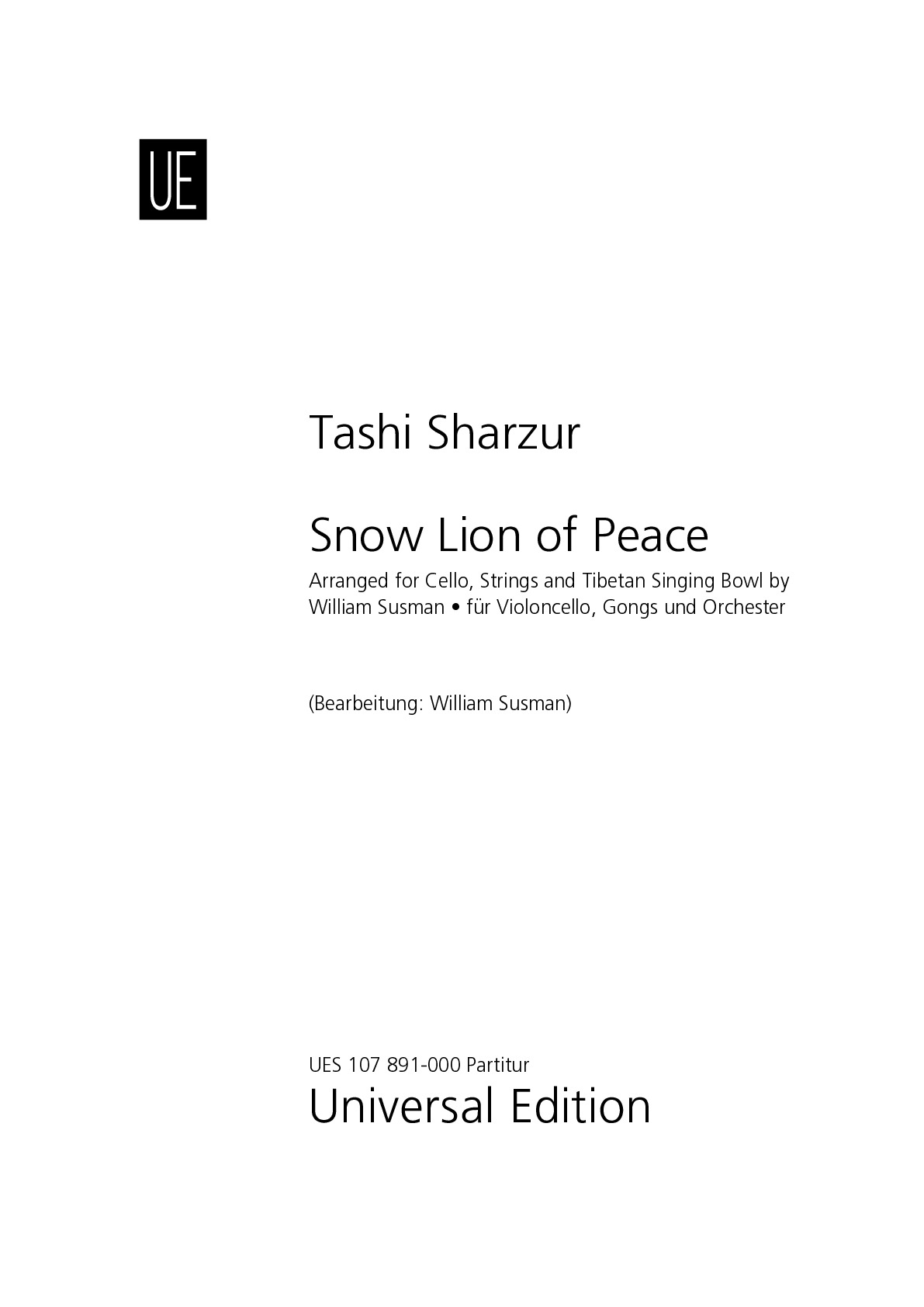

Tashi Sharzur
Snow Lion of Peace
Short instrumentation: 0 0 0 0 - 0 0 0 0, str
Duration: 4'
Bearbeitung: William Susman
Solos:
singing bowl
violoncello
Instrumentation details:
violin I (6 players)
violin II (6 players)
viola (4 players)
violoncello (3 players)
double bass (2 players)
Snow Lion of Peace
Printed/Digital
Translation, reprints and more

Tashi Sharzur
7. Violoncello (Snow Lion of Peace)Type: Solostimme(n)


Sample pages
Audio preview
Video
Work introduction
In 2009, I was contacted to write a piece for the San Jose Youth Orchestra that would be performed for his Holiness the 14th Dalai Lama on his visit to San Francisco. I asked Tibetan vocalist Tsering Wangmo, who sang on my score to Fate of the Lhapa, a recommendation for a song I could adapt. She suggested Techung’s Snow Lion of Peace, a song admired by the Dalai Lama and subsequently he gave me permission to arrange it. The cello part takes on the voice of Techung, the string orchestra acts as his Piwang (fiddle bow) and, the Tibetan singing bowl adds a spiritual element and the ground-note D.
-William Susman
Techung is a Tibetan folk and freedom singer/songwriter living in exile. He is best known for his performances of traditional Tibetan music, dance, and opera under the name Tashi Dhondup Sharzur. He uses his childhood nickname, Techung, when performing as a solo artist. Whether performing in traditional or contemporary styles, Techung’s dual goals are to revive Tibetan music in the Tibetan community and to expose the rich performing cultural tradition of his homeland to the world community.
Techung grew up in Dharamshala, India, where his family and tens of thousands of other Tibetans resettled from their native Tibet. At the age of 9 he was enrolled in the newly formed Tibetan Dance and Drama School now known as the Tibetan Institute of Performing Arts (TIPA). In his 17 years of residency at the Institute, he studied all aspects of the Tibetan performing arts folk, court, and opera — through the oral teaching tradition used by the venerated Tibetan elders with whom he was honored to study. He toured with TIPA in its first international tour as a leading child actor in 1975-76 and for many years afterwards. After emigrating to the U.S., he co-founded the San Francisco-based Chaksampa Tibetan Dance and Opera Company in 1989. From 1995-97 Techung worked for the Milarepa Fund in San Francisco who organized the Tibetan Freedom Concerts world wide.
In addition to being looked up to as one of the key keepers of traditional Tibetan musical traditions, Techung is also respected for the original solo and collaborative music he creates by drawing on both his own heritage and his familiarity with other world music traditions. He collaborated on his first solo album, “Yarlung: Tibetan Songs of Love and Freedom” (1997) with composer/performer Miguel Frasconi, followed by “Sky Treasure” (2001) with Windham Hill jazz keyboardist Kit Walker. His other two solo albums were “Changhay: Traditional Tibetan Drinking Songs, Vol. 1” (1999) and “Nyingtop-Courage” (2002). His song “Losar” was chosen as the 2003 best modern traditional Tibetan song at the first annual Tibetan Music Awards held in Dharamshala. His album “Techung: A Compilation of Tibetan Folk and Freedom Songs” won the 2006 Best Asian Album at Just Plain Folks Music – one of America’s largest grass root music festivals.
Techung’s voice and music have been featured on the soundtracks of the IMAX film “Everest,” and the feature films, “Windhorse” (1998) and, “Dreaming Lhasa” (2006). His music is prominently featured in documentary films such as “Blind Sight” (2007), “Dalai Lama Renaissance” (2008), and, “Fire Under the Snow”(2008). His music has also been used in a DVD titled “Living Wisdom With His Holiness The Dalai Lama” (2008).
In recent years, Techung has had the honor to open for His Holiness the Dalai Lama’s public speech in Costa Rica, Japan and the USA. On February 3, 2009 Techung and his band Lhasa Spirits performed at Carnegie Hall with prominent artists such as Philip Glass, Patti Smith and others.
